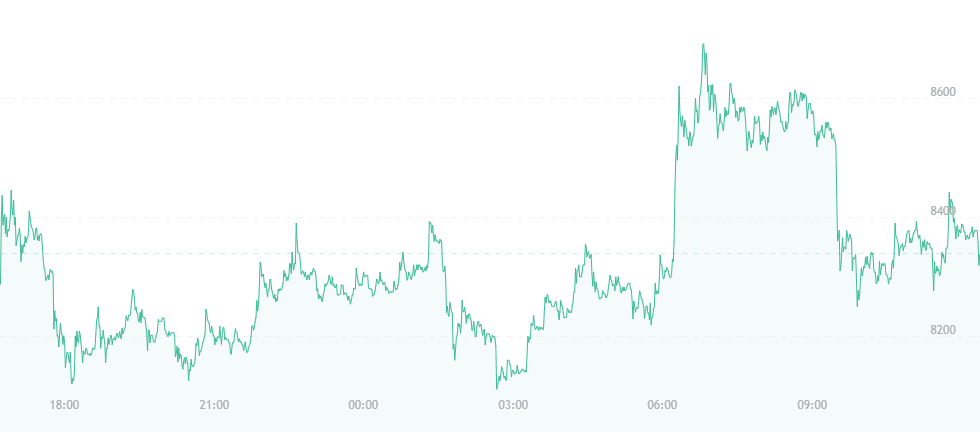Bitcoin has enjoyed a small jump following yesterday’s monthly low. At press time, the coin is trading for just over $8,300 following a rough stint that saw it meandering at the $7,600 mark during the early hours of March 18.
For every factor contributing to bitcoin’s rise, there seems to be one knocking it back. Originally hovering at around $8,500 during the morning of March 19, bitcoin’s price fell to its current spot after President Donald Trump announced that he was banning American residents from purchasing or trading Venezuela’s cryptocurrency the “petro.”
While allegedly created to assist in the country’s ailing economy by President Nicolas Maduro, the coin has no doubt caused its fair share of controversy following its official introduction last February. The currency was the object of several private auctions, which according to a Tweet later posted by Maduro, resulted in over $730 million in profits. That number, however, has yet to be confirmed.
In addition, the coin was alleged to be backed by the nation’s oil reserves, yet investors would not own any stakes in Venezuelan oil. This led to more raised eyebrows.

The country is currently plagued by high crime and poverty rates, and inflation is expected to exceed 13,000 by the end of the year. Trump may be working to prevent the country from gaining necessary access to capital granted its socialist ideals take further precedent. In the past, Trump has even threatened military action against Venezuela if it was unwilling to play by the rules.
On the other hand, some sources say bitcoin’s price is incurring steady rises thanks to comments made by Mark Carney at the recent G20 meeting. As chairman of the Financial Stability Board (FSB) and the governor of the Bank of England, Carney – a regular instigator of digital asset regulation – spoke in favor of virtual coins, saying they do not pose serious risks to the global economy.
His comments were also published in a letter to the FSB on March 18. The document states:
“The FSB’s initial assessment is that crypto-assets do not pose risks to global financial stability. Even at their recent peak, their combined global market value was less than one percent of global GDP… The technologies underlying them have the potential to improve the efficiency and inclusiveness of both the financial system and the economy.”
This newfound sentiment suggests that cryptocurrencies are not something to ban or shun, but rather something to “nurture.” Still considered birthing technologies, virtual coins continue to be subjects of widespread debate, with some claiming they give rise to security issues and criminal organizations, and others claiming they can cancel out problems like money laundering and stabilize the current financial system.
Furthermore, the letter goes against Carney’s previous statements, who prior to the G20 meeting and the document’s publication, warned that there were “many problems with cryptocurrencies,” which he felt were small for the time being, but would undoubtedly get bigger. Though he discussed concerns ranging from price fixing to terrorist financing, Carney also spoke of numerous incidents of theft from individual wallets, particularly in his native U.K.
Bitcoin’s price rose nearly $1,000 after the change in Carney’s ideals, only to endure a slight drop following Trump’s order.

